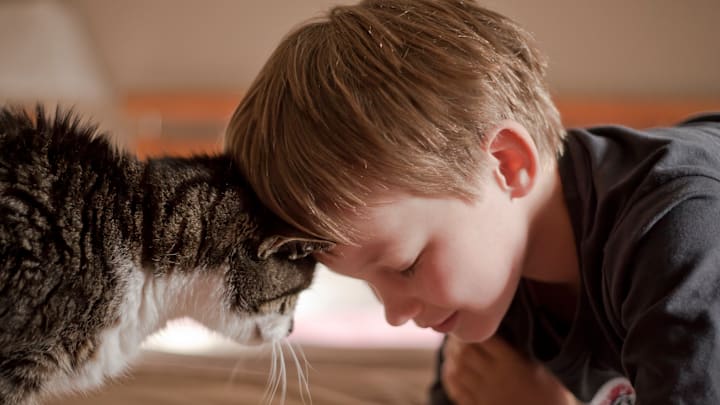Cats are complex creatures. Scientists have continuously studied their behaviors, such as purring and kneading, to better understand them. Another confusing behavior cat owners may have noticed is random headbutting, also known as head bunting.
According to PetMD, a cat’s head bunt is likely a way of marking you. Cats have pheromones within the glands in their cheeks, foreheads, and chins. The animals use scents from these chemicals to communicate. Your kitty has an incredible sense of smell—which means that while humans can’t smell the pheromones, other cats can detect that another member of their species has claimed you. Felines may also headbutt various objects to mark their territory.
Strangely enough, cats may resort to headbutting when getting to know someone new. It’s best to avoid sudden, quick movements when a cat does this to ensure they aren’t startled.
Your feline will often headbutt you—typically while purring—as a sign of affection. It’s a way of bonding and showing trust. You may even see your cat headbutting other pets for the same reason. If you see your cats bumping heads, they’re forming a connection by creating a colony scent and mixing their smells.
PetMD states that your cat could also be headbutting you to simply grab your attention. If they want to be pet or want food, they may lightly push their head against you so you’ll stop what you’re doing and shift your focus to them. This is especially the case if you’ve rewarded the cat with attention after headbutts.
Keep in mind that head bunting and head pressing are different. Head pressing is the urge to press one’s head against an object, which typically indicates damage to the nervous system. Other concerning symptoms accompanied by head pressing include pacing, circling, and disorientation. It’s best to take your cat to a vet immediately if you witness them head pressing.
Read More About Cats:
